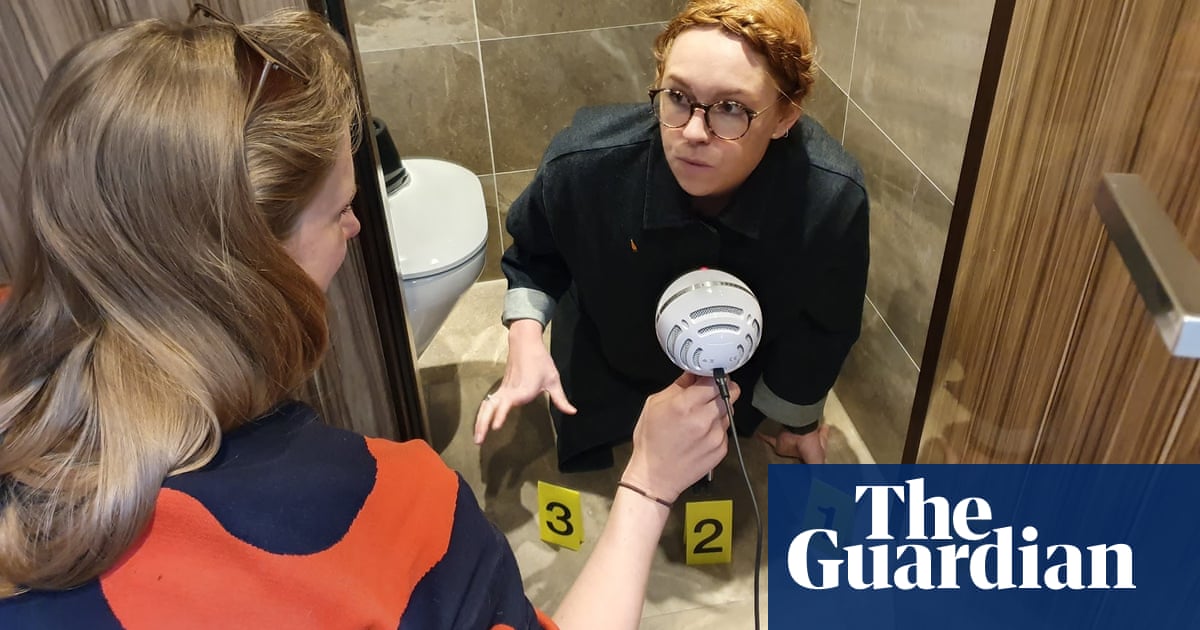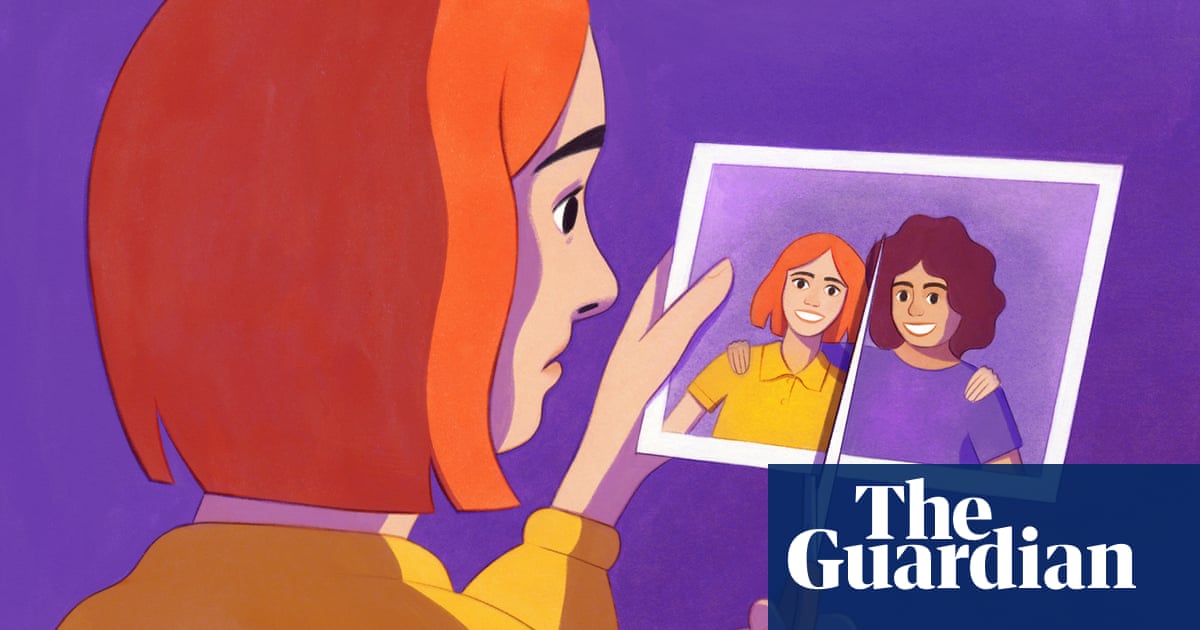
Choosing a stage musical to see right now can feel like browsing the cinema listings of the 1980s and 90s. Pretty Woman and Back to the Future are playing across the street from one another in London’s West End, with The Lion King, Matilda and Heathers nearby. Indecent Proposal opens next month.
The speed of traffic travelling in the opposite direction, from stage to screen, tends to be a little faster, though. A film of Dear Evan Hansen, the Broadway hit about an anxious, alienated student who pretends to have been friends with a suicide victim, has arrived only five years after it opened, with Julianne Moore and Amy Adams among the cast. Everybody’s Talking About Jamie, which follows a 16-year-old budding drag queen from Sheffield, has taken just four years, picking up Richard E Grant and Sharon Horgan along the way.
Producers from Warp Films, which is based in Sheffield, leapt on to Jamie with all the enthusiasm of the teenager getting his hands on some sparkly new heels. “They were there at the 10th performance,” recalls Jonathan Butterell, who developed the show, which is based on a 2011 documentary, then directed it at the Crucible theatre in Sheffield in 2017. “They loved it and asked to meet with me. I thought someone was going to say, ‘Obviously, we’ll look for a director for this’ because I hadn’t made a film before. But that conversation simply never happened.”
A screen version, adapted by the show’s writers Tom MacRae and Dan Gillespie Sells, was already on the cards by the time the musical became a West End smash later that year. Butterell claims never to have faced any pressure from financiers to cast, say, Timothée Chalamet with a Sheffield accent. Instead, he put out calls on social media for newcomers, and found the dynamic 21-year-old Max Harwood. But why not bring back John McCrea, who originated the role in Sheffield and London but gets only a walk-on in the film? “By this time, John was 27,” he explains. “And on camera, you do look 27. John knew it. We all knew it. I didn’t want to do a Grease, where you’ve got 30-year-olds playing 16.”
This is precisely the criticism that Dear Evan Hansen has attracted by retaining the original Broadway star, Ben Platt, who is 27 but playing a decade younger. “I honestly didn’t anticipate that reaction,” says the film’s director, Stephen Chbosky. “But if people see the movie and they’re still talking about his age, then it probably wasn’t for them anyway.”
Unlike Butterell, Chbosky has form as a film-maker: he directed The Perks of Being a Wallflower, adapted from his own YA novel, as well as scripting the movie version of Rent and co-writing Disney’s live-action Beauty and the Beast. Dear Evan Hansen is his first stab at directing a musical, though, and while he had admired the show on Broadway, he knew it required a different texture on screen.
“I kept saying we were making a musical with a small ‘m’,” he tells me. “I thought of it as a drama with songs. I love big, splashy musicals but this one takes place in dining rooms and bedrooms, so that approach wouldn’t have worked. I wanted to deal with it sonically, as though the dialogue and lyrics were interchangeable. The mix is so subtle that you don’t realise a song is about to happen, whereas in most musicals it’s like: ‘Here comes the band!’”
A few songs have been axed, among them the opening number, Anybody Have a Map?, which introduced the characters in a way that felt inherently theatrical. Two songs were written specially for the film, including A Little Closer, which is sung by the dead boy, Connor, and lends the ending a different emphasis. On stage, Evan agonises over the lies he has told but there is little sense of the wider impact of his actions. Chbosky knew that wouldn’t sit well on film. “Evan confessed to everyone on stage but there are only eight characters in the play. Once you go into the real world on film, there are dozens of people who know him. He has to come clean to them, too.”
He worked with the show’s authors, Steven Levenson, Benj Pasek and Justin Paul, to find some solutions. “I told them I wanted Evan to confess to the community. I kept thinking about him at his 10-year high-school reunion. Like: is he still pretending to be Connor’s friend? I didn’t want him to have that burden.”
Theatre and cinema audiences experience the material differently, he notes. “When you see a show, it washes over you, and maybe later you say, ‘Wait, why didn’t he … ?’ But it’s a live experience. Whereas the film can be watched as many times as anyone would want. It’s this permanent record, so it has to be more accountable. This is the version that a young person, who might need this movie, will eventually have on their phone. I wanted them to have one more example of the theme of the piece – that you have to be yourself, with no lying and no hiding.”
Everybody’s Talking About Jamie has also undergone some nips and tucks. On stage, Jamie’s mentor Hugo performs The Legend of Loco Chanelle, a campy, spirited number about his days as a drag queen. “That’s the rhythm you hit at that time in the show,” says Butterell, “but I knew it wasn’t filmic.” What cinema audiences get instead is a home-movie flashback montage that encompasses the decimating sweep of Aids and the protest marches against Section 28, all set to a new song, This Was Me, performed by Holly Johnson of Frankie Goes to Hollywood. “I went on those marches,” says Butterell. “And I lost young friends of 22 or 23 to Aids. They were the Jamies of their day. I wanted their stories to come to light.”
Not all the alterations are so beneficial. It seems perverse, for instance, to cut away from the Act Two showstopper, He’s My Boy, when it has barely even begun. What should have been the big number for Jamie’s mother (played in the film by Sarah Lancashire) is reduced to the level of musical accompaniment as we instead watch Jamie wandering the streets, stealing from a shop, and running on to the pitch during a football game to get the attention of his disapproving father. Divorcing the song from its singer risks turning the film temporarily from a musical into a pop video.
Why didn’t Butterell simply leave the camera on Lancashire? “Sarah is more than capable of holding that four-and-a-half minutes on her own,” he insists. “But I wanted to layer the scene, and to juxtapose different things. That’s what cinema can do so beautifully. I tried to show how his mother was in some way culpable for Jamie’s feelings of self-destruction, and for us to actually see him hitting that self-destruct button.”
He cheerfully answers my other nagging criticisms – about why Jamie is so chaste and sexless, and whether the central struggle of the drama has been overtaken by the mainstream acceptance of RuPaul’s Drag Race – with all the confidence of a man who stands by the film he has made. “I do understand what you’re saying,” he says. “People have visceral reactions to the material, and that includes thinking, ‘Oh, I wish they’d done it like this …’”
Jamie and Evan represent only the first of this autumn’s crop of new stage-to-screen musicals. In the next few months, fans of Matilda (the stage version, that is, with songs by Tim Minchin), Tick, Tick … Boom! (directed by Lin-Manuel Miranda) and West Side Story (the Steven Spielberg remake) will also get their chance to say: “Oh, I wish they’d done it like this.” And there’s more to come. A movie of Wicked, the Wizard of Oz prequel that has been running since 2003, has been in the works for longer than it would take to build the Yellow Brick Road, but is due to reach cinemas next year. A film version of the brash, buzzy teen musical Be More Chill is also in development, just four years after its Broadway run.
Anything would look speedy next to Richard Linklater’s film of Stephen Sondheim’s Merrily We Roll Along, which tells the counter-chronological story of three friends from their 40s back to their 20s. Linklater’s adaptation is currently in production – and will be until the late 2030s. Rather than resorting to wigs and makeup to show the young cast in middle age, Linklater (also responsible for 12-years-in-the-making Boyhood) is shooting scenes each year so that the actors will be the same age as their characters. The film’s star? Ben Platt. Perhaps by the time the movie opens, around 2040, the carping about how old he looks in Dear Evan Hansen will finally have died down.
Everybody’s Talking About Jamie is in cinemas and on Amazon Prime. Dear Evan Hansen is in cinemas from 22 October.












